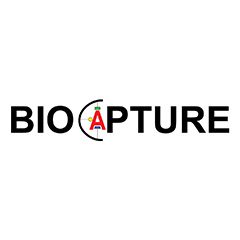Development and validation of a MIP glycomics platform
Host Institute
Copenhagen Center for Glycomics, Department of Cellular and Molecular Medicine, University of Copenhagen
Host Country
Denmark
Start date
During the period March 1st 2016 – October 1st 2017
The candidate will be employed at the Department of Cellular and Molecular Medicine, Faculty of Health Sciences at University Copenhagen, and will be enrolled in the graduate program for Cellular and Genetic Medicine under the supervision of Prof. Henrik Clausen and Assistant Prof. Zhang Yang.
Project description
One of the most abundant and diverse posttranslational modifications (PTMs) is glycosylation, and studies of the glycoproteome in health and disease are critically dependent on enrichment strategies for specific glycans on proteins and peptide digests1. Currently a limited set of lectins is used for affinity-chromatography and other capture strategies combined with sensitive mass spectrometry sequencing2, but more specific binders and a wider range of specificities are needed. Gene editing of cell lines with CRISPR/Cas9 is applied to engineer glycosylation capacities suitable for specific enrichment strategies and such isogenic cell lines serve as models and controls for development and validation of molecularly imprinted polymers (MIPs) based glycomics.
In this project you will use CRISPR/Cas9 gene editing to engineer glycosylation in human cell lines and analyse glycosylation and glycoproteomes by advanced mass spectrometry. You will use different binding assays to evaluate and compare MIP binding and capture specificity and efficiency compared to lectins and antibodies. Successful MIP designs will be further used in biomarker discovery. You will work closely with a large team of experts in gene editing, glycoprofiling and glycoproteomics, and we expect your results will lead to MIPs superior performance in analysis of glycans.
The project will include secondments to Proteome Sciences, London (UK); Cancer Research UK Manchester (UK) – clinical diagnostics; Federal Institute for Materials Research, BAM, Berlin (Germany) – sensor technology; University of Southern Denmark, Odense (Denmark) – proteomics; Biotage, Lund (Sweden)– method validation.
Apart from carrying out research within these areas the applicant is expected to take minor part in teaching in cell biology and/or chemistry. The candidate will be enrolled in the 3 year PhD-program at the Faculty of Health Sciences and will be expected to complete a PhD including completion of local academic and network wide training requirements. The research topic is “Biomedical sciences” and the Faculty examines Doctors of Philosophy.
Group description
Copenhagen Center for Glycomics is a Center of Excellence funded partly by the Danish National Research Foundation (DNRF). The Center is comprised of 6 senior professors, 4 junior professors, 5 post docs and 8 PhD students, and focuses on complex carbohydrates and their role in health and disease. We have a unique approach to glycomics using primarily gene editing of the glycogenome to uncover and dissect biological functions of glycosylation3.
The Center has a wide international collaborative network with academic institutions and industry.
Institute description
With over 40,000 students and more than 9,000 employees, the University of Copenhagen is the largest institution of research and education in Denmark. It comprises six faculties and more than 100 departments and research centres.
The purpose of the University is to conduct research and provide further education to the highest academic level.
The motivational force of the University’s research activities is financially and politically independent, i.e. free basic research; however, specific collaborative endeavours with other institutions and companies also have a place among the countless research activities. The dissemination of knowledge and findings to other research environments and to the general public is a natural element of the University’s research efforts. The diversity of academic environments and scientific approaches is the University of Copenhagen’s distinguishing feature and strength.
Ideal candidate
The successful candidate will have a masters’ degree (or equivalent) in biology, biochemistry, molecular biology or related. Experimental laboratory experience is required and candidates with international publications and experience directly related to the research topic of the position outlined above will be given preference.
Working conditions and benefits
The candidate will become an employee of the University of Copenhagen and receive a competitive monthly gross salary in accordance with the EC Marie Sklodowska-Curie rules. The contract period will last for 3 years.
Contact
For more information on this position, contact the hiring party: Prof. Henrik Clausen
E-mail: hclau@sund.ku.dk
Phone: +45 20145537
Selected references for additional information
1. Levery, S.B. et al. Advances in mass spectrometry driven O-glycoproteomics. Biochimica et biophysica acta 1850, 33-42 (2015).
2. Steentoft, C. et al. Precision mapping of the human O-GalNAc glycoproteome through SimpleCell technology. The EMBO journal 32, 1478-1488 (2013).
3. Steentoft, C. et al. Precision genome editing: A small revolution for glycobiology. Glycobiology 24, 663-680 (2014).
